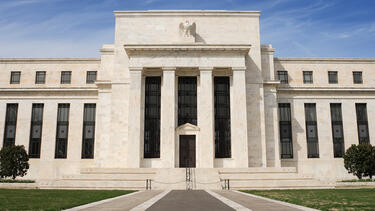Faculty Viewpoints
How Does the Changing Price of Oil Affect Economies around the World?
Experts from the Global Network for Advanced Management weigh in on how fluctuating oil prices affect the economy in their home countries.

Why the ‘Dump Trump’ Strategy is Doomed
In a Fortune magazine article, Professor Jeffrey Sonnenfeld suggests that political rivals who underestimate Donald Trump—and the myth surrounding him—do so at their own peril.
Does the Fed Need a Foreign Policy?
As the Federal Reserve prepares to raise interest rates—a move that will be felt globally—Professor Jeffrey E. Garten outlines a foreign policy agenda for the Fed.

The Housing Market Still Isn’t Rational
In a New York Times op-ed, Robert J. Shiller explains why the housing market “is far less rational than even the often irrational stock market.”
Putting the Iran Nuclear Deal in Context
Professor Paul Bracken, a leading security strategist and author of The Second Nuclear Age, discusses the Iran nuclear deal.

Who Needs National Champions?
Yale history professor Jenifer Van Vleck on the rise and fall of Pan Am and how it exemplifies the tricky relationship between government and the private sector.

The Mirage of the Financial Singularity
The financial singularity, a hypothetical state in which powerful computers direct all investment decisions and financial markets become perfect, will never become reality, according to Robert Shiller.

What Does the Greek Crisis Mean for Global Business?
Experts from the Global Network for Advanced Management weigh in on how the Greek crisis could affect the economy in their respective countries.

Is the Canadian Dollar a Petrocurrency?
Werner Antweiler of UBC’s Sauder School of Business says that Canada’s dollar is acting like a classic petrocurrency.

The Myth of Nepal’s Missing Men
Professor Mushfiq Mobarak and co-author Alix Zwane argue that discouraging labor migration is not the right way to help Nepal recover.